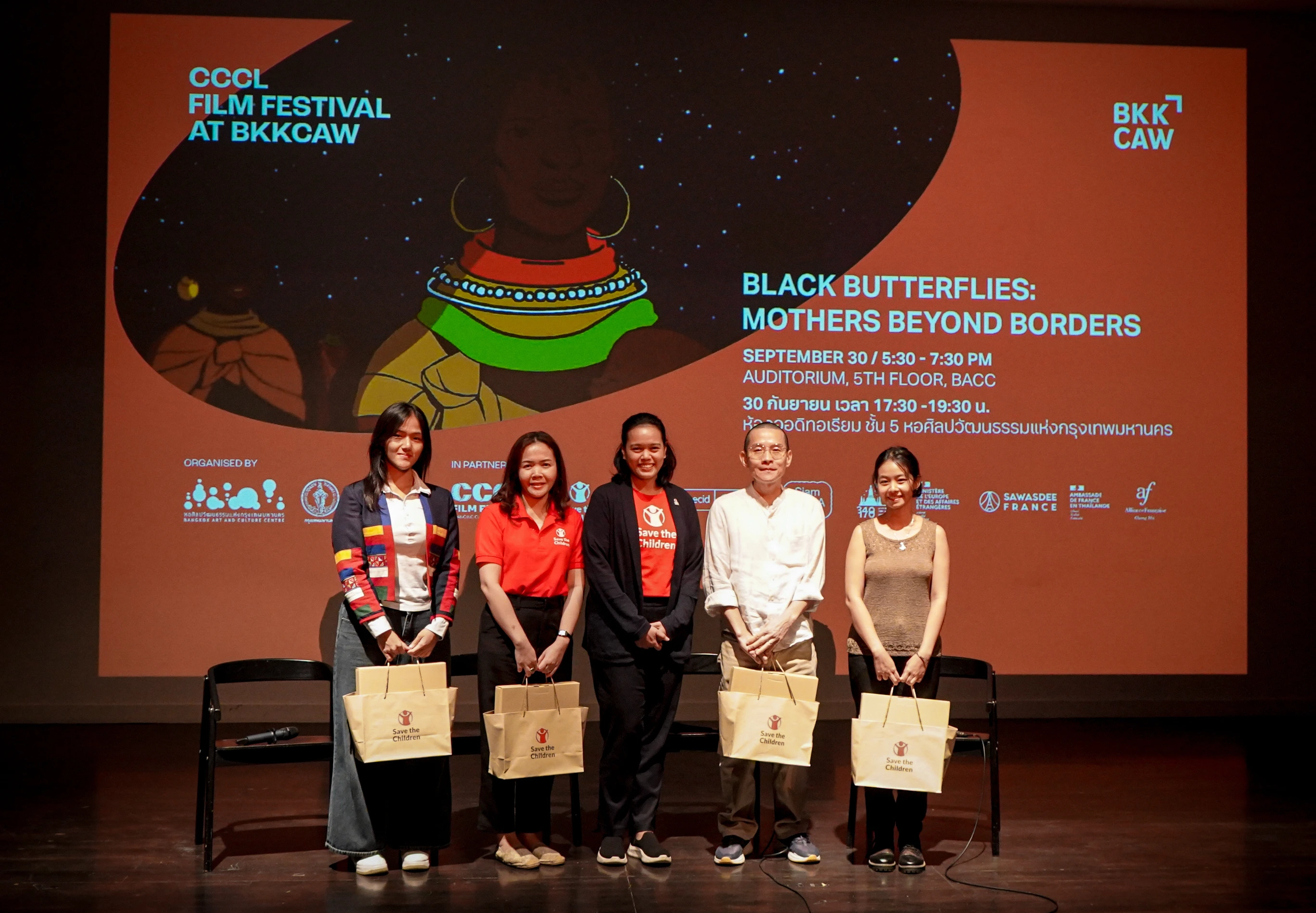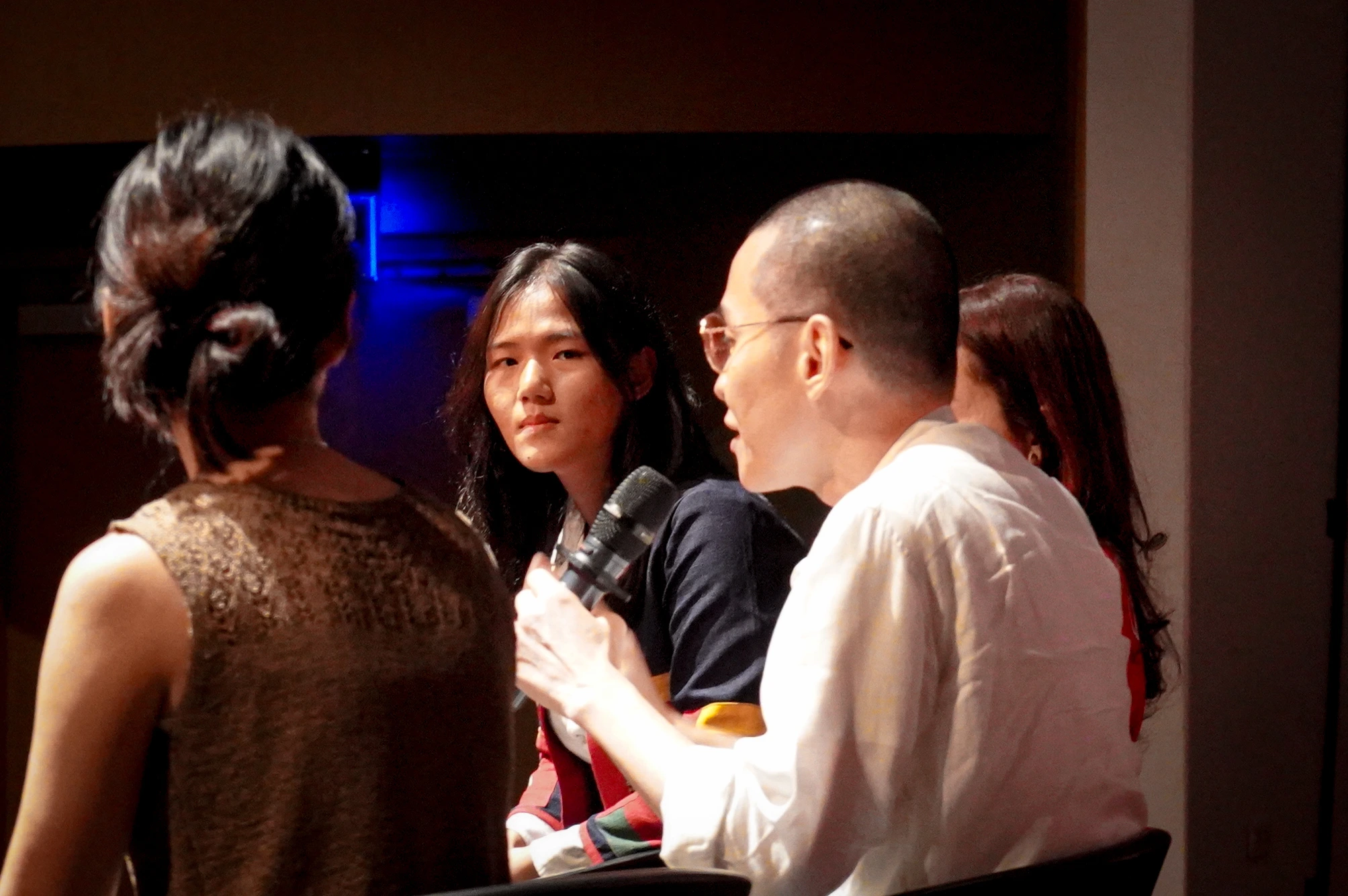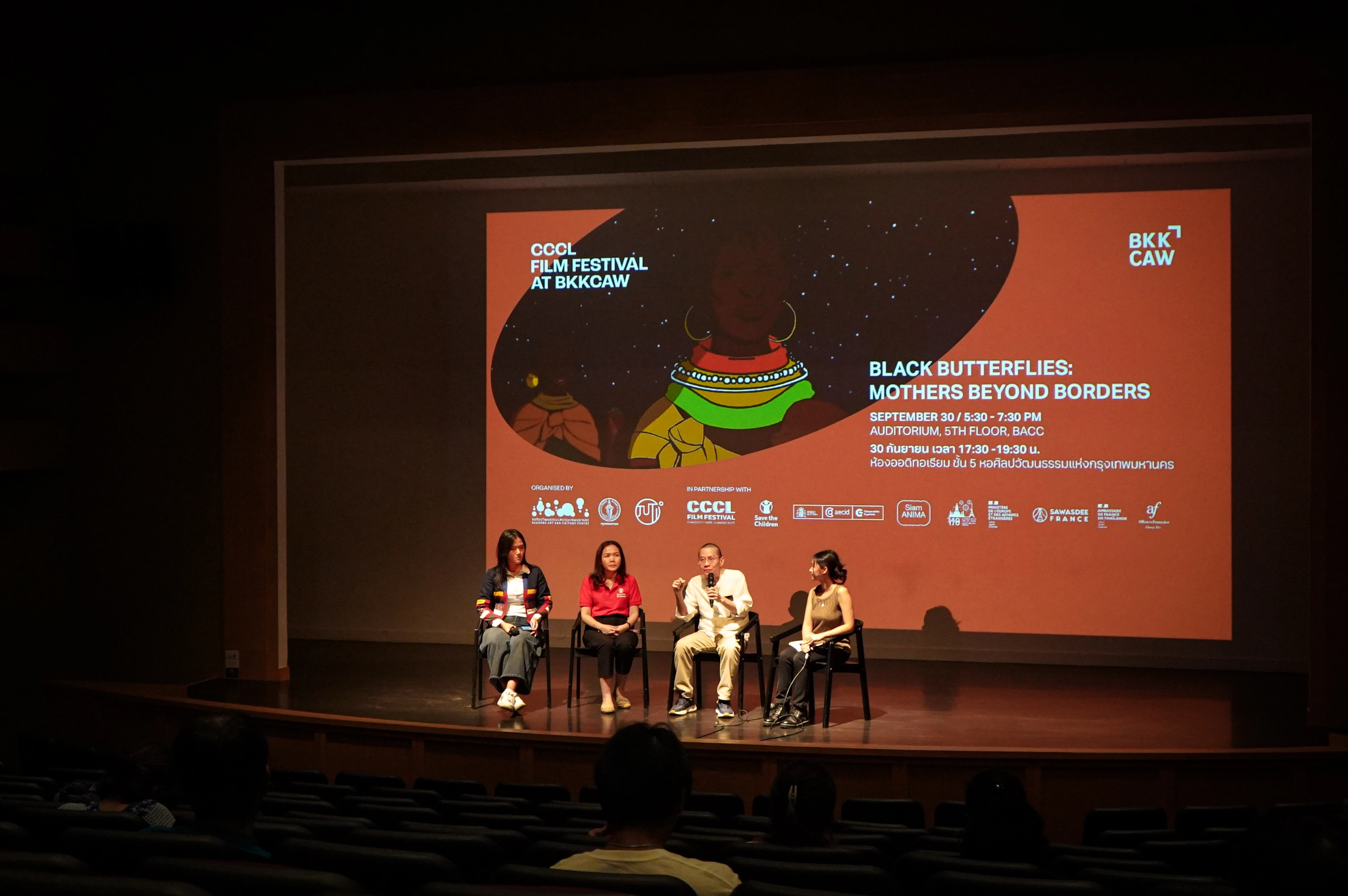CCCL Screens Black Butterflies and Holds Dialogue on Climate Change, Women, Youth, and Vulnerable Communities in “Mothers Beyond Borders”
- Info CCCL Film Festival
- Oct 9, 2025
- 3 min read
From September 30 to October 4, 2025, the Climate Change Communication Lab (CCCL) hosted CCCL Film Festival at BKKCAW as part of Bangkok Climate Action Week, in collaboration with the Bangkok Art and Culture Centre, JUTI, Save the Children Thailand, Greenpeace Thailand, the Embassy of Australia, and a network of local filmmakers. The five-day program featured film screenings, discussions, and masterclasses exploring the intersection of art, storytelling, and climate action.

On Tuesday evening, September 30, CCCL, in collaboration with SiamANIMA and with support from the Embassy of Spain in Thailand, presented a special screening and talk titled “Black Butterflies: Mothers Beyond Borders.” The session featured the documentary BLACK BUTTERFLIES directed by David Baute, which follows the stories of three women—Lobuin, Vanessa, and Soma from different corners of the world who each lost everything to the impacts of the climate crisis. The screening was preceded by the short film STARS ON THE SEA by JANG Seung-wook.
Following the screening, CCCL hosted a panel discussion featuring Dr. Pawin Talerngsri (Climate Change Expert), Muslin Vananetikul (Save the Children), and Marisa Yapangku (Center for Girls Foundation), moderated by Nattida Rattanasawat (Thai Climate Justice for All). The panelists reflected that the film left them “speechless”, emphasizing how the climate and environmental crises disproportionately affect vulnerable groups, especially women and children.

“Even if we stop hurting the Earth right this second, the damage that’s already been done will stay with us for hundreds of years.” - Dr. Pawin Talerngsri, Climate Change Expert
Women on the Frontlines of Crisis
The climate crisis is widening the gender gap. Women often face more difficulties than men, as mothers and caregivers. Many have even risked their lives to protect the future of their children. Migration has also caused communities to lose their cultural roots. Yet, in many places, women have become the frontline leaders in helping their communities cope and adapt.

“With the ongoing climate crisis, we’re seeing the loss of biodiversity, which will lead to many other impacts. For ethnic communities like ours in Chiang Rai, there are concerns that this could impact women’s reproductive health. In the future, birth rates may decrease, and the number of miscarriages may increase.” - Marisa Yapaengku, youth representative of the Center for Girls Foundation
The Thai Context: A Crisis that Creeps In
In Thailand, the impacts of climate change are not as sudden or dramatic as in the film. Instead, they slowly seep in through recurring droughts, floods, and water contamination. Many communities have recognized these changes and developed their own ways to cope. However, the crisis in Thailand often takes the form of structural violence arising from government policies or development projects that directly affect vulnerable groups.
Even though awareness of women’s and children’s rights has increased, government policies are still not enough to protect vulnerable groups during crises. Relying on the state alone may not be the solution.
“Chiang Rai city experienced its heaviest flooding in 50 years. It was like a wake-up call that this is already happening.” - Marisa Yapangku, youth representative of the Center for Girls Foundation

Community-Led Solutions
Meaningful support must start from what communities truly need, as they often know best how to adapt and build resilience. Strengthening local capacity and promoting coexistence with changing environments are key. Incorporating STEM knowledge is also crucial, particularly in initiatives that help women access technology, such as flood warning systems or sustainable livelihood programs that foster local economic strength. At the same time, the government should elevate certain environmental issues, like chemical contamination in Chiang Rai, to the level of national concern.
“Migration has both advantages and limitations. On the positive side, people move to find new places where resources like water are available, seeking a better life. But the downside is the loss of cultural resilience — the beliefs, traditions, and practices they once had. When people move in different directions, it can make them even more vulnerable, instead of staying together as a strong community.” - Dr. Pawin Talerngsri, Climate Change Expert
Voices of Youth: Change through Participation
Marisa Yapaengku and youth representatives from ethnic communities proposed creating education that reaches all regions to increase understanding of climate change. They also suggested organizing provincial-level “Climate Festivals” and opening participatory spaces where women, children, and ethnic groups can help identify problems and design solutions together.
The youth also emphasized that innovation doesn’t always have to involve large-scale technology. Local knowledge can be adapted to strengthen food security and community sustainability. They also stressed that “private corporations” should take responsibility for the environmental impacts and pollution they cause.
The climate crisis is not a distant threat, it is a reality unfolding now. Change must begin at the community level, supported by national policies and shared responsibility from all sectors, so that the Earth can remain a home for all life.







Comments